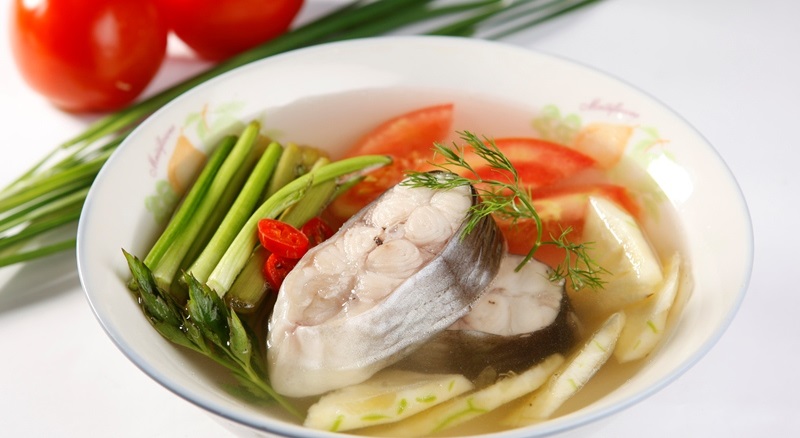Make sure to thoroughly wash the fish and remove the fishy smell
One of the principles when cooking fish soup is to wash the fish thoroughly and eliminate the fishy smell before cooking.
The reason is that fish soup is often made fishy by the remaining blood of the fish. Therefore, you need to wash them thoroughly before cooking.
At the same time, if you want a delicious fish soup, you need to remove the fishy smell before cooking. To remove the fishy smell of fish, you should wash the fish with vinegar or lime juice. This will help eliminate the fishy smell. If you do not have vinegar or lime juice, you can use a mixture of white wine and salt, which is also very effective in removing the fishy smell.

How to cook fish soup without it being fishy
Only cook the fish, not the marinade
One of the secrets you need to remember when cooking fish soup is to only cook the fish and discard the marinade. Many people pour the marinade into the soup, making your dish fail due to its strong fishy smell.
Fry the fish before cooking or use boiling water
One of the principles to completely eliminate the fishy smell in fish soup is to fry the fish in oil before cooking. This step helps the fish meat firm up and minimize the fishy smell.

3 principles to cook fish soup without it being fishy
However, if you do not like oiliness and want to keep the natural fishy smell, you can directly cook the fish without frying. If you apply this method, you can do the following: Boil the water first and then add the fish. The boiling water will immediately make the fish meat contract, so the blood and slime from the belly and skin of the fish will not have time to mix into the water, preventing the dish from becoming fishy.
In addition, you should also remember that adding fish to boiling water only applies to broth-based soups such as sour soup, banana blossom soup…. For soups that do not require a lot of water from the beginning, do not use this principle!
8 Essential Fish Processing Tips You Need to Know
In addition to being a delicious addition to your dinner plate, fish can also offer a variety of novel cooking techniques. From using vinegar to remove the fishy smell to ginger for frying it without sticking to the pan, discover how to process fish in new and exciting ways.
Maximizing Durability and Energy Efficiency with High-Speed Kettles: Tips and Advice
Are you an electric kettle aficionado? If so, you’ll appreciate Ði?n máy Xanh’s latest offering. We’ve compiled comprehensive instructions to help you make the most of your electric kettle, including tips on how to prolong its life as well as maximize energy savings. Let’s get your kettle expertise up to date!
“3 Simple Steps to Remove the Fishy Smell of Salmon”
Are you looking for ways to get rid of that unpleasant fishy smell associated with salmon dishes? If so, we have some useful tips that can help you make a delicious and healthy meal without the fishy odor. Keep reading to learn our easy-to-follow suggestions for removing the odorous smell from salmon dishes!



































